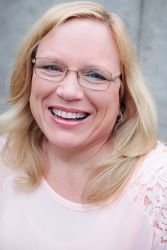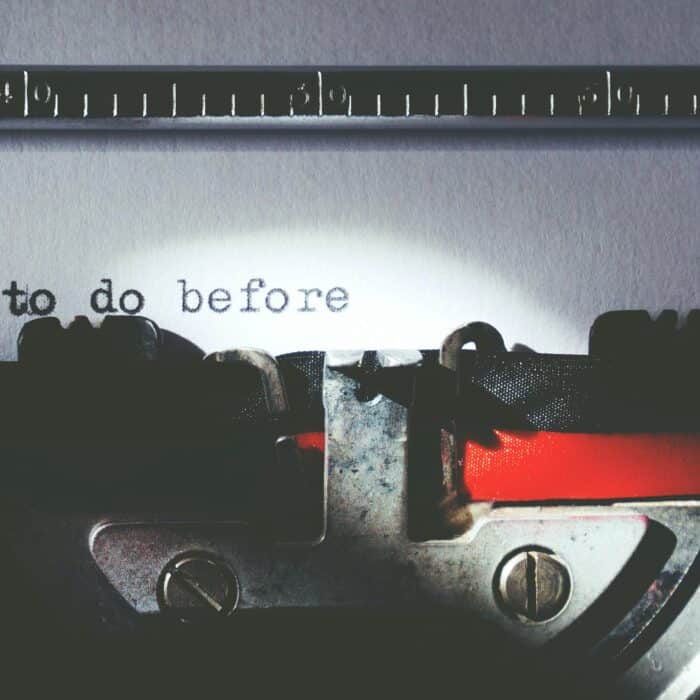Nov 10, 2015
Guest Blogger: Jill Johnson-Young
ASD is pleased to share this month’s guest blog post in our new blog series from Jill Johnson-Young. The blog series is focused on aftercare, self care, and helping families with grief recovery. Jill Johnson-Young, LCSW, is a clinical therapist in private practice in Riverside, California. She is the co-owner of Central Counseling Services, where she specializes in grief and loss for adults and children, as well as individual and family therapy. Jill is certified as a Grief Recovery Specialist through the Grief Recovery Institute and has more than a decade of experience as a medical social worker in hospice both in California and Florida. She holds a Master’s degree in Social Work from the University of South Florida and is licensed in California. Jill is a member of the Orange Belt Funeral Director’s Association. Her passion is seeing people work through the losses they experience and finding a new path where they can thrive in a life they choose.
How do we explain what we do to our children- and how do we make it okay?
This month’s topic was suggested by someone from a school who was researching funeral professionals online. It’s a topic that’s come up before, but largely in the context of the offbeat sense of humor shared by the funeral industry away from ears that would be offended. Many of you have children and grandchildren and they are fully aware of what you do for a living. How do you make them comfortable with it? How do you acknowledge the kids who would prefer not to be part of your professional life? If they don’t want anything to do with what you do, where do you connect? Most importantly, is being in an industry that focuses on death harmful to your little people?
My approach, as a therapist, begins with the premise that children are remarkably resilient, and that what we approach as normal is normal. Let me take this out of the realm of funeral directors and staff for a moment, and make it personal. My kids are all adopted, some from the same family group, others not. They all have other siblings, who are all part of our lives. I’m “Mom Jill” to some, “Auntie Jill” to others. I transitioned from auntie to mom for one of my kids when she was almost 16. When adults try to understand and process the multiple relationships that exist in our family vine they have to come up with titles, with degree of blood relations, with role titles. If you ask the kids, as a group, no matter who shared a birth parent or not, they will tell you they are sisters and brothers and that their adoptive siblings are also my kids’ sisters and brothers. They don’t need titles and explanations; it’s been our norm all along that this is who we are as a family. We don’t match, we share different names, and we don’t give it a thought.
Likewise, in my former lives as a social worker in child protective services and hospice, it was normal for me to be late, to have the kids work on a project for an adoption fair or create holiday ornaments for dying patients, or to know that mom was going to help a family as someone was dying that day. They heard CPS and hospice humor when they were around my friends and colleagues. For my kids, that was normal. Now that I’m married to a funeral director, the sense of humor is even more warped—our sofa table is an antique autopsy table and funeral sconces light our fireplace mantle.
All that goes toward the concept of making what you do normal for your kids. The outside world may shy away from you when they hear what you do – “Isn’t it creepy to be around dead people?” Your family should not. But like anywhere else, our kids are little bitty individuals from the time they become toddlers (Remember when your child first told you “No!”) Some will be more comfortable than others with your profession. That doesn’t mean they are disrespectful. It means it’s not going to be what they do when they grow up, and that their friends may be uncomfortable with the idea that their parents actually do work with dead people. Zombies are fun, but real dead folks are still a little scary.
So how do we handle kids growing up in this world? I asked a friend who has two amazing daughters who grew up with a mortician mama. Jennifer Wright, of Sunset Funeral Care in Redlands, California, responded as I expected- she simply made it normal to walk through the viewing room, to see caskets, to hear about work. One daughter told her she thought “all dead people had the same noses.” That’s when she realized that all she could see were noses protruding above the liner of the casket! That daughter now prefers, as a young adult, not to hear about or to be part of the funeral world, while her other daughter posts pictures of herself on Facebook hanging out at the mortuary in the office. She doesn’t even notice now when there is a deceased in the room as she walks by. Two kids, same mom, same experiences, different reactions. One child hears conversations about work, one gets an edited version. One mom being sensitive to her individual children’s needs without criticism or hurt feelings. What we do for a living doesn’t have to be what they want. One of my kids wants to be involved in CPS when she finishes college; one wants to run a restaurant; one helps out in my office and enjoys interacting with clients. It’s not personal or disrespectful of the work I’ve done- it’s who they are. I’m really hoping they go into nursing like my late spouse. Better money, less homework. I’ve been told no by all of them.
What of the child who is distancing themselves from you? First, look at the age. There is a time when we need to let our children focus more on friends than on us. Little people, those who have not hit adolescence, shouldn’t be there yet. If there’s an issue, there’s work to be done toward normalizing and permission giving. Yes, your parents work in a mortuary, but you don’t have to go there if you don’t want to. Is your schedule too impacted by the need to meet your client families’ needs? If so, it’s time to break out time for a sport or activity away from work that won’t be interrupted. A time when the cell phone won’t ring (that’s why you have ASD, right?) and when they are your focus. Reconnecting happens when there’s an activity involved.
Finally, don’t pathologize. Kids really are unique. If one needs to not be part of your work world, remove them. Let them be part of the rest of your life. Make it a focus for them. But don’t make it an issue if it’s not. Tell them they don’t have to hear about your work, and that’s okay with you. And ask if they are being given a hard time by other kids about what you do. If they have heard about a particularly difficult case that carried secondary trauma home through you then a short time in counseling might be in order. And remember- kids who are aware of death are also aware you are vulnerable. Reassurance is absolutely necessary that you are healthy, you will be there, and you have secure plans in case there is ever an emergency so they are with someone they know and love. Your children have a special lesson in knowing that the deceased are well cared for and respected, and understanding the life cycle. Make sure they know they are well cared for in that cycle too.
Check back next month for another guest post from Jill Johnson-Young.
Be sure to read Jill’s Other ASD Guest Blog Posts:
Guest Blog Post #1: Providing Grief Support to Families
Guest Blog Post #2: Self-Care Moments for the Funeral Profession
Guest Blog Post #3: Tips for Handling Funeral Home Stress
About The Author
Jess Farren (Fowler)
Jess Farren (Fowler) is a Public Relations Specialist and Staff Writer who has been a part of the ASD team since 2003. Jess manages ASD’s company blog and has been published in several funeral trade magazines. She has written articles on a variety of subjects including communication, business planning, technology, marketing and funeral trends. You can contact Jess directly at Jess@myASD.com


